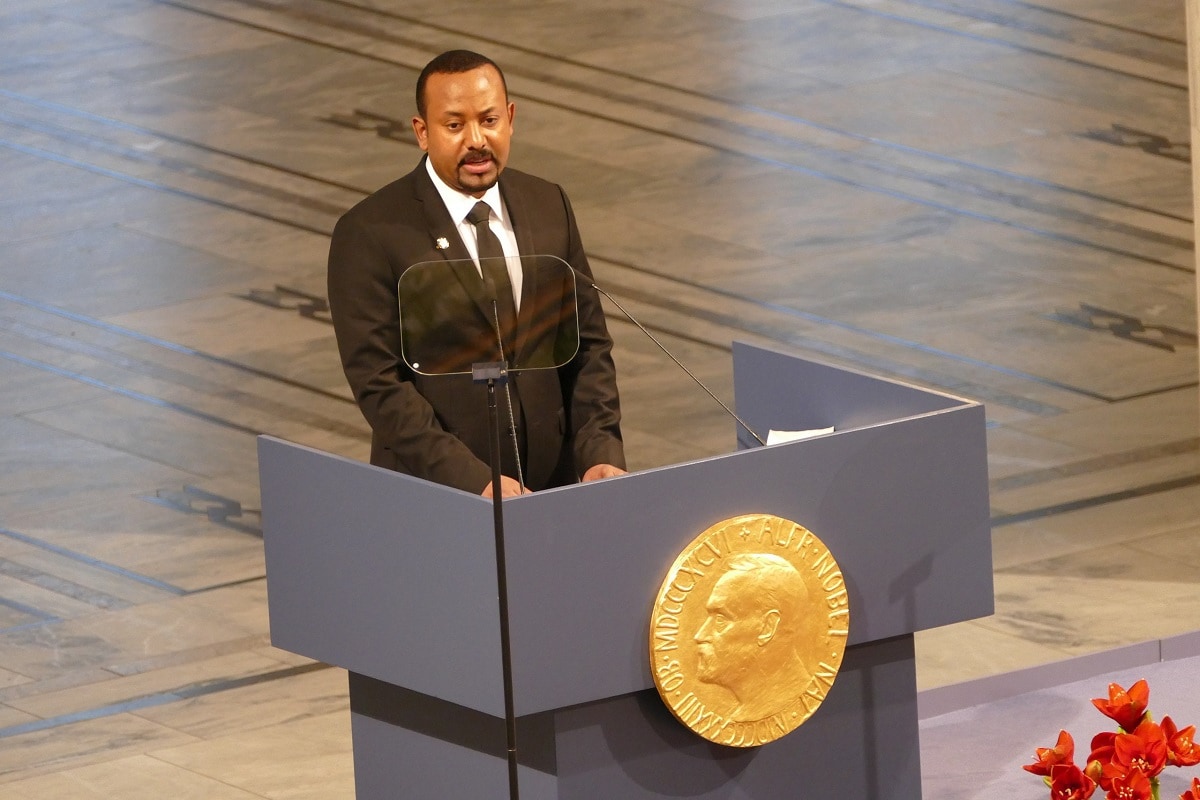When Eritrean President Isaias Afwerki dies and Ethiopian Prime Minister Abiy Ahmed leaves office, they will leave behind a legacy of destruction.
Both have run the countries they lead into the ground socially, economically, and diplomatically. Isaias is among the world’s worst violators of human rights. Eritrea is also among the world’s most corrupt countries, on par with Haiti and worse than even Iraq or Lebanon.
Nor has he limited his destruction to his own country. As he seeks to deflect attention from his own failures and delay consequence for his mismanagement, he has looted Tigray and also moved to undermine stability more broadly in the rest of Ethiopia, Somalia, and Djibouti.
Abiy is little better. President Joe Biden might laugh and joke with him as they watch a World Cup football game at the White House, but there can be no easy rehabilitation for a man with the blood of a half million civilians on his hands. His obituary will focus on his legacy of genocide in Tigray rather than his earlier Nobel Peace Prize.
To deflect attention from their failures, both Isaias and Abiy and their apologists embrace a slogan formulated by Ghanaian economist George Ayittey and subsequently popularized by the African Union and speak of “African Solutions to African Problems.”
On its face, they use the slogan as a means to bypass accountability for their actions. Starvation, dictatorship, corruption, limitless national service and genocide need never be accepted African solutions, even if Isaias and Abiy wish them to be.
Rather than simply laugh off their racial rhetoric and inflammatory statements, perhaps it is time for international diplomats to embrace the “African Solutions” mantra for the better. While Isaias and Abiy represent some of the worst African governance, Africa is also replete with success, countries like Botswana, Ghana, Namibia, Rwanda, Somaliland, and South Africa.
Consider human rights: Abiy may today be synonymous with genocide and human rights abuse, so why not embrace an African solution like the Truth and Reconciliation Commission set up by South Africa’s Government of National Unity to investigate and expose the crimes of the Apartheid-era? Nor was South Africa alone in this. Morocco aired truth and reconciliation hearings to air openly the human rights violations during the reign of Hassan II. Liberia, too, embraces the model, even if President George Weah seeks to protect top political supporters complicit in civil war-era crimes. When the international community failed Rwanda after the anti-Tutsi genocide, spending billions of dollars but failing to bring génocidaires to justice, the Rwandan government initiated a grassroots “Gacaca” to allow village elders to address accusations by victims against perpetrators. The system was rapid but fair and demonstrated how African solutions can be superior to European practices.
Then there is democracy. Isaias wants an African solution? Why not try democracy Botswana-style? Almost every other African country proves that there is nothing African about Isaias’ three decade failure to hold national elections. The reason he treats Eritrea as a personal fiefdom is due more to personal megalomania than African tradition or local culture. If, however, Isaias wants an African solution to the Eritrean problem, maybe he could copy Somaliland’s embrace of biometric iris scans during voter registration? I observed the process during a visit to Laas Anood ahead of Somaliland’s 2021 parliamentary elections. Frankly, U.S. officials worried about voter fraud might adopt the same model.
Then there is the economy. The financial situation of both Eritrea and Ethiopia are poor. Abiy and Isaias often blame the outside world, but the real problem is incompetent economic stewardship and corruption. Here, Eritrea and Ethiopia might take a lead from Rwanda, a country that has jumpstarted the economy and investment by overcoming dysfunctional corruption.
Isaias and Abiy may believe their parroting of the “African Solutions for African Problems” has populist appeal, but this is disingenuous. Trade is international as are many conflicts. Tigray was always internationalized and so its solution must be as well. Global problems span borders. It is no longer possible to treat countries as if they are outside the international system. If Isaias and Abiy are truly for African solutions, why do they have bank accounts outside their own country? The two leaders and their supporters may dismiss all criticism with the mantra of African solutions but this is disingenuous. Africans have agency. To identify problems and treat Africa according to the same standards of the rest of the world is not racist, but mindlessly blaming outsiders is racist. That Africa’s success leaves Isaias and Abiy behind does not make either victims, it just shows them to be poor leaders.
Michael Rubin, a former Pentagon official, is a resident scholar at the American Enterprise Institute and a senior lecturer at the Naval Postgraduate School.

